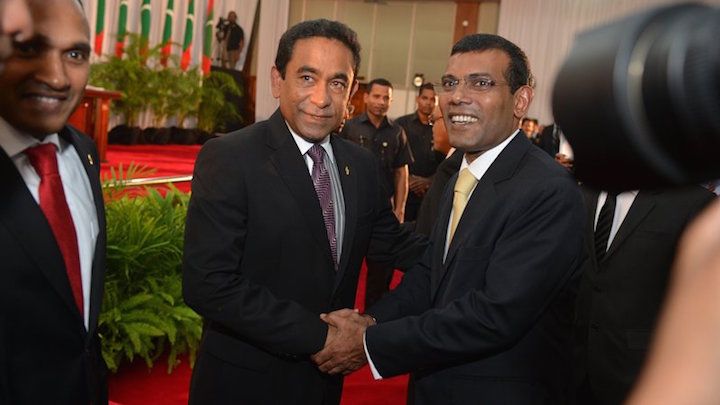Police seek to charge Nasheed for Yameen’s 2010 arrest
A spokesman said the police have sent files on the investigation to the prosecutor general’s office, but declined to comment on the charges against the opposition leader.

10 Jan 2017, 09:00
Police in Maldives are seeking to charge former President Mohamed Nasheed over the 2010 arrest of President Abdulla Yameen.
A spokesman said the police have sent files on the investigation to the prosecutor general’s office, but declined to comment on the charges against the opposition leader.
Nasheed is living in exile in the United Kingdom.
His defence minister, Ameen Faisal, is standing trial on terrorism charges relating to Yameen’s arrest.
Become a member
Get full access to our archive and personalise your experience.
Already a member?
Discussion
No comments yet. Be the first to share your thoughts!
No comments yet. Be the first to join the conversation!
Join the Conversation
Sign in to share your thoughts under an alias and take part in the discussion. Independent journalism thrives on open, respectful debate — your voice matters.




